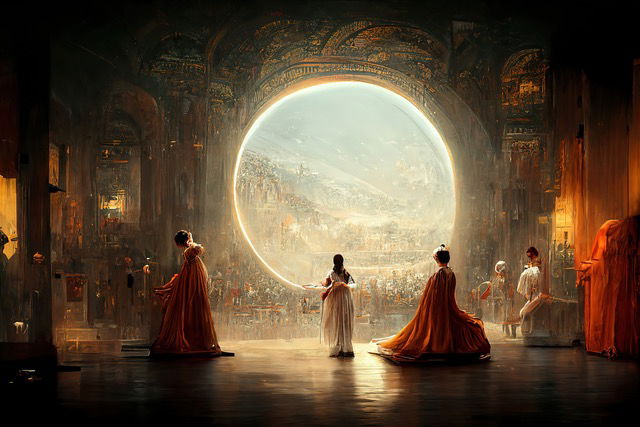Should you be able to copyright art made using artificial intelligence? A Pueblo West man says so
PUEBLO WEST, Colo. (KRDO) - A Pueblo West artist is fighting with the U.S Copyright office, who denied his request to trademark his award winning work, that was created using the help of artificial intelligence.
Jason M. Allen, a former game developer, discovered the possibilities of what artificial intelligence, or A.I, could bring to the table in creating art a few years ago. The interest soon turned into a passion through the program, Midjourney.
The AI engine allows the user to input endless amounts of words, phrases, or images, to curate a specific end product. It's a complex process, one that Allen has worked at and nearly perfected.
His initial spark of interest culminated in 2022, where he spent two weeks making over 600 alterations through Midjourney, to create the "Theatre d'Opera Spatial".

The piece, pictured above, won him 1st place at the Colorado State Fair that year. He says he was very transparent about his submission and how it was created. Organizers simply moved his work to different category, and he ended up winning.
The news caused a stir in the art community, and Allen was thrust into the ever-expanding discussion of A.I becoming more integrated into our society.
In response to the many criticisms that Allen has faced, including the question of whether what he does with the A.I engine is even considered "art", he said:
"I don't see how it wouldn't be. It's using a machine or a device like so many others have in the past. This is an ongoing debate. It never ends, actually. This is sort of part and parcel, par for the course, really for the art community as a whole," said Allen, "Throughout history, we've seen historically, paradigm shifts in art movements [that] create a lot of pushback as far back as we can tell." he explained on Wednesday.
Not long after winning the show at the state fair, Allen applied to have Theatre d'Opera Spatial be protected by U.S copyright. However, he was turned down. The office claimed he was not the owner and creator of that artwork, but rather the computer was.
"Obviously, I made it. Like if we're just talking about this from the heart, it wouldn't exist without me." stated Allen. "People want to say that, oh, I just put in a word salad and I get back [the image], the computer did all the work. And I think that's just as ridiculous as accusing an excavator that's dug a basement that he didn't dig the basement. The backhoe did or the loader did." he added.
Fast forward, and just last week, Allen and an attorney filed an appeal against the copyright decision in federal court.
Amongst the many arguments in the appeal, Tamara Pester, Allen's attorney, cites a case that arose in the late-1800s, which sought copyright claims over a piece of art, that was captured using a tool: a photo taken by a camera.
"They said that the camera should be considered the author. But then it did get appealed and went all the way up to the Supreme Court, who overturned it." explained Pester.
Pester says that similarly, Allen's case could look to set the precedent for A.I tools being used in art.
"Now that it's reached a point where it's helping assist in the creative field, that's stepping on a lot of people's feelings or something like that, and it doesn't need to be that way." said Allen.
Pester says it could be weeks or even months before they get a response to their appeal being filed
